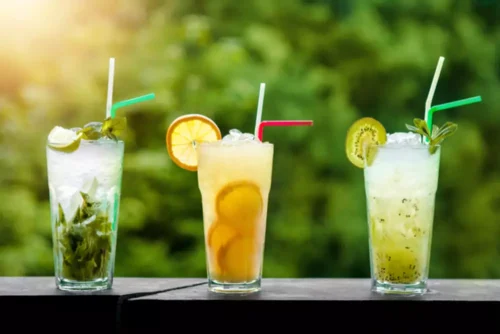Overview of dehydration: What to know, drink types, and tips
Overview of dehydration: What to know, drink types, and tips

According to the CDC, drinking alcohol in moderation is safe for most people. A moderate amount equates to one glass of alcohol or less per day for females and two glasses of alcohol or less per day for males. Even though we often drink more beer in a sitting than wine, wine’s higher alcohol strength still nudges it ahead in the dehydration stakes when you compare equal alcohol volumes. For starters, if you drink wine while on an empty stomach, your intestines will absorb the alcoholic content and the liquid very quickly. Since there isn’t any food to get in the way, this will result in your body absorbing what water is already in the wine, leaving the alcohol in your system by itself.
Loss of Coordination
Alcohol is a diuretic, which means it causes your body to produce more urine. While it may feel like you have to hit the bathroom more often after that first trip, your body is just catching up with the alcohol you’ve consumed. They don’t offer nutritional value in the long-term, despite what you’ve read about drinking wine for health. “As the body gets dehydrated, the heart has to work harder to pump blood through the vessels,” explains Clark. You do not need to blanch mushrooms before dehydrating them, as long as you will be cooking the dried mushroom before consumption.
Is Drinking Wine Good For You

This can Drug rehabilitation stop the body from recognizing its orientation in physical space, since endolymph can’t properly navigate the vestibular system’s semicircular framework. It’s currently unknown whether or not alcohol dehydrates muscle, but it definitely weakens it. Due to its diuretic effect, alcohol makes it more likely for tissues to be deficient in electrolytes. This is something for athletes to be aware of, as it puts them at greater risk of pulling or straining their muscles.
Drink less alcohol.
Having the right balance of fluid in your system is essential for your body to carry out basic functions. Chronic heavy drinking can result in high blood pressure, which is a leading cause of kidney disease. It can also weaken immunity, increasing a person’s risk of infections.
- The body may tolerate a moderate intake of beer without experiencing dehydration.
- Alcohol is a well-known diuretic, meaning it promotes the production of urine.
- When you consume alcohol, it suppresses the secretion of vasopressin, also known as antidiuretic hormone (ADH).
- While these drinks don’t cause dehydration, large amounts may increase urine production.
- When this hormone is suppressed, it leads to increased urine output and dehydration.
- When you lose too much water without properly replacing it, you become dehydrated.
So work on around 300ml (a large glass) of water per bottle and you should be okay. These strategies can help mitigate any potential negative effects while allowing one to enjoy the culinary delights that come with using vinegar. While these mixers may add flavor or sweetness to cocktails, they can also contribute extra calories without providing any significant hydration benefits.

What are some health benefits associated with moderate vinegar consumption?

Water will help to reduce the chances of dehydration and flush out toxins. It is also recommended to eat food before drinking, as this will slow the absorption of alcohol and reduce the risk of dehydration and other negative side effects. Carbohydrate-rich foods such as bread, cereals, grains, or rice are ideal, as they can help to raise blood sugar levels, which drinking can lower. The diuretic effect of alcohol inhibits the production of the antidiuretic hormone “vasopressin,” which is crucial for water retention. As a result, the kidneys’ ability to retain water is compromised, leading to increased urination and fluid loss. This loss of fluids can affect your electrolyte levels, causing dehydration and symptoms like headaches and fatigue.
Why Does Alcohol Dehydrate You?
Electrolytes are minerals that can conduct electricity and use that ability to help the body relay messages. Electrolytes can help direct water to where it’s most needed, and DripDrop has three times the electrolytes of a sports drink. Multi-flavor pouches are available for mixing it up, and subscriptions allow users to save 25%. Each of these can be a contributor to alcohol-related headaches, but dehydration is a close threat when partaking in any alcoholic beverage. How much alcohol you consume will influence what symptoms you experience.
Alcohol may also interact with medications or disrupt sleep, both of which are important for recovery. Historically, fermented beverages like wine were sometimes used as medicinal tonics because they were safer than untreated water and contained beneficial compounds. This historical use has contributed to myths about wine curing illnesses like colds.
2.1. Differences between the Alcoholic Beverages and Their Non-Alcoholic Counterparts
Just because a wine is “fruit forward” does not mean it is sweet. People often mistake fruitiness for sweetness, but the vast majority of wines in the world are in fact dry! Many different wines across the board will have naturally occurring fruit notes to them, and no, that does not mean there are literal apples or strawberries in your wine. “Dry” refers to the perceived taste does wine dehydrate you the wine leaves in your mouth because it contains low levels of residual sugar after fermentation.
